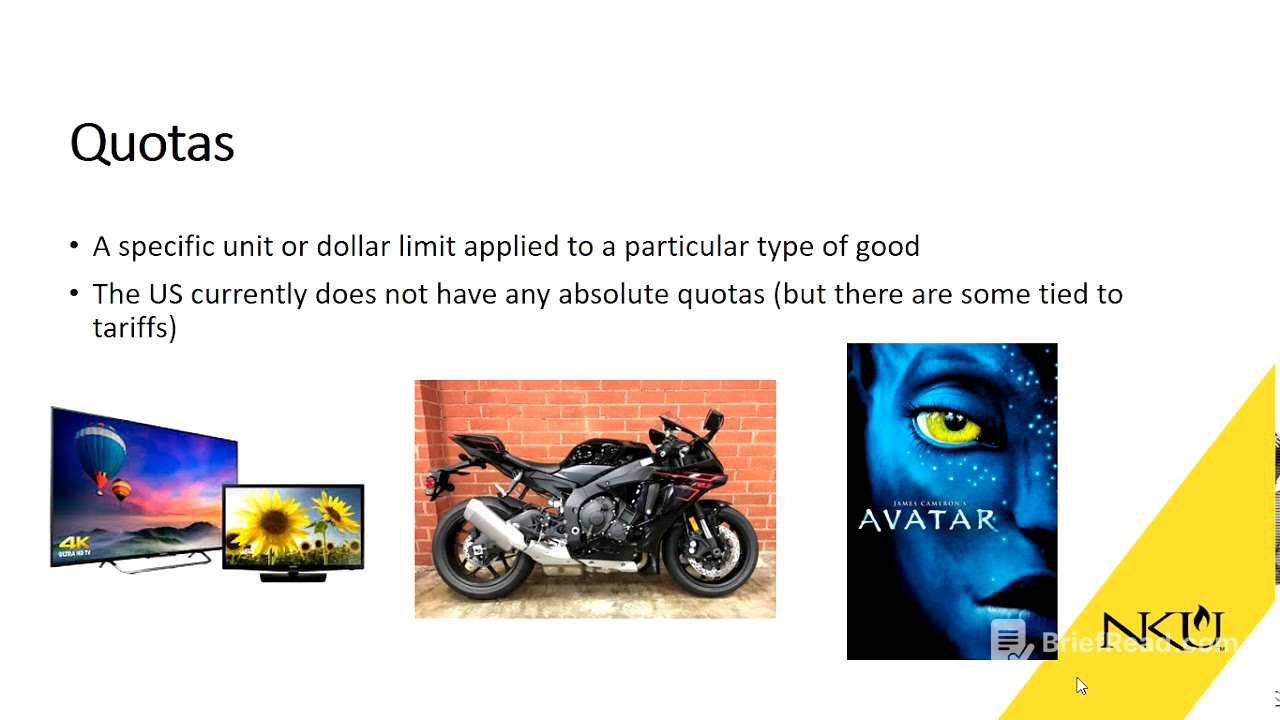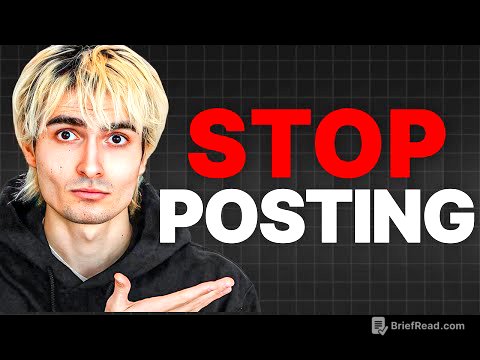TLDR;
This lecture defines protectionism and explores its various elements, such as tariffs, quotas, boycotts, embargoes, and standards. It highlights how these measures, while intended to protect domestic industries and consumers, can lead to higher prices and trade restrictions. The lecture encourages critical thinking about the benefits and drawbacks of protectionism in the global market.
- Protectionism involves legal, exchange, and psychological barriers to restrict goods from other countries.
- Common elements include tariffs, quotas, boycotts, embargoes, and standards.
- These measures can increase prices for consumers and impact international trade.
Introduction to Protectionism [0:00]
Protectionism involves using legal, exchange, and psychological barriers to limit the entry of goods from other countries, as detailed in the textbook. While countries aim to protect their citizens, U.S. customers pay an average of $70 billion more annually due to these protectionist measures. The lecture poses the question of whether the benefits of protectionism outweigh the costs, such as increased consumer prices.
Tariffs [1:11]
Tariffs, a common element of protectionism, are taxes imposed on goods entering a country's borders. They serve as revenue-generating tools and discourage imports. The current global landscape sees increased tariffs on specific countries to deter importation. However, tariffs can be arbitrary, discriminatory, and require significant government administration. Examples of tariffs on products imported into the United States include pet toys (4.3% tax) and ballpoint pens (8 cents each plus 5.4% bulk tax). These taxes ultimately increase consumer prices.
Quotas [3:11]
Quotas involve setting specific unit or dollar limits on particular types of goods. Great Britain limits imported television sets, while Italy restricts Japanese motorcycle imports to boost domestic sales. China imposed a quota on the movie "Avatar," limiting the 3D version's screening time. In the U.S., quotas exist for sugar and peanuts, often tied to tariffs. Quotas increase consumer prices by limiting the number of imports.
Boycotts and Embargoes [5:21]
A boycott restricts the purchase and importation of certain goods and services from other countries, potentially including travel bans. For example, China restricts its citizens' travel to Canada. Boycotts can be government-led or initiated by organizations and consumer groups, such as the boycott of Nestle's infant formula. An embargo, similar to a boycott, is a refusal to sell to a specific country, also potentially including travel restrictions. The U.S. currently has embargoes with Iran, North Korea, Syria, Sudan, and Cuba, often used against countries with disputes.
Standards [7:29]
Standards protect consumer health, safety, and product quality for imported goods but can also restrict trade. Each country sets its own product quality standards, with food products often having the highest standards. For example, U.S. standards dictate the amount of fruit in jam, which varies globally. Japan has standards on the size of knot holes in plywood imported from the U.S., rejecting non-compliant products. The European Union has strict standards on beef imports due to mad cow disease. The U.S. also requires a local percentage of local content in some products, impacting countries exporting goods. These standards affect how products are produced and traded internationally.









